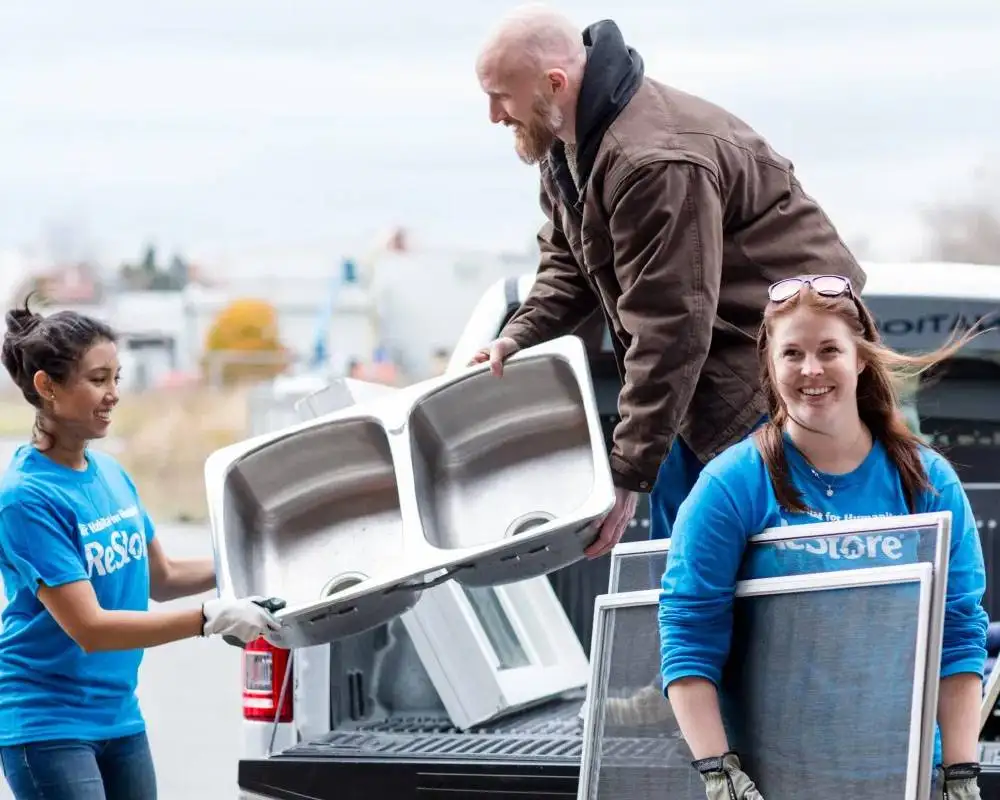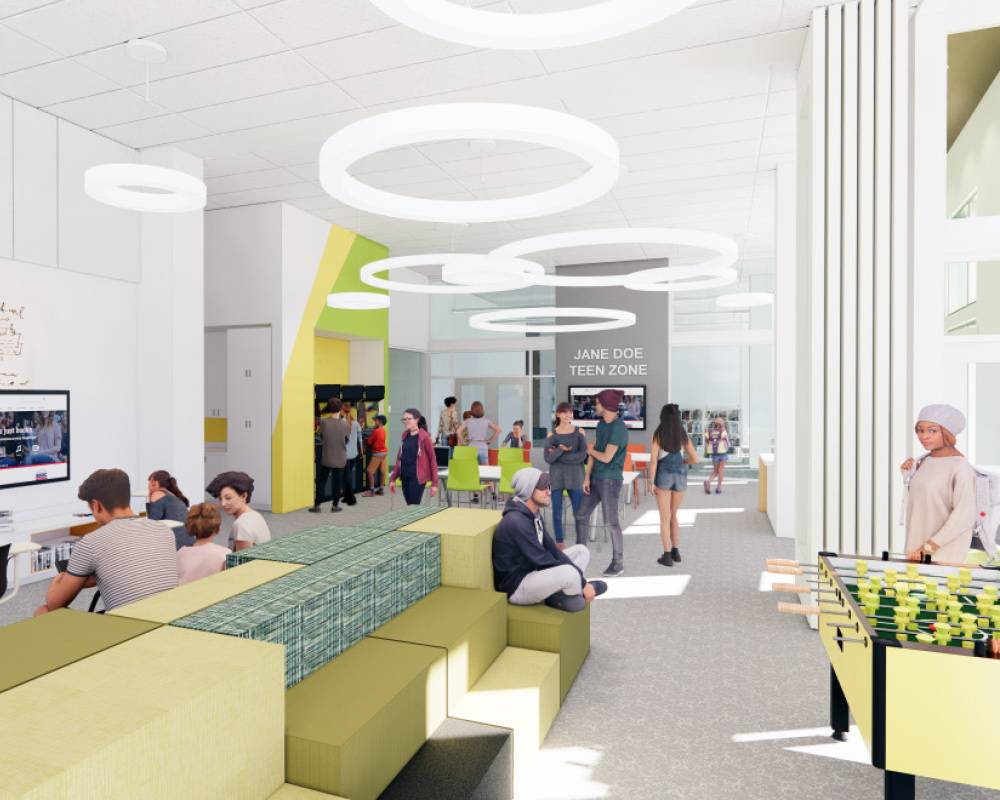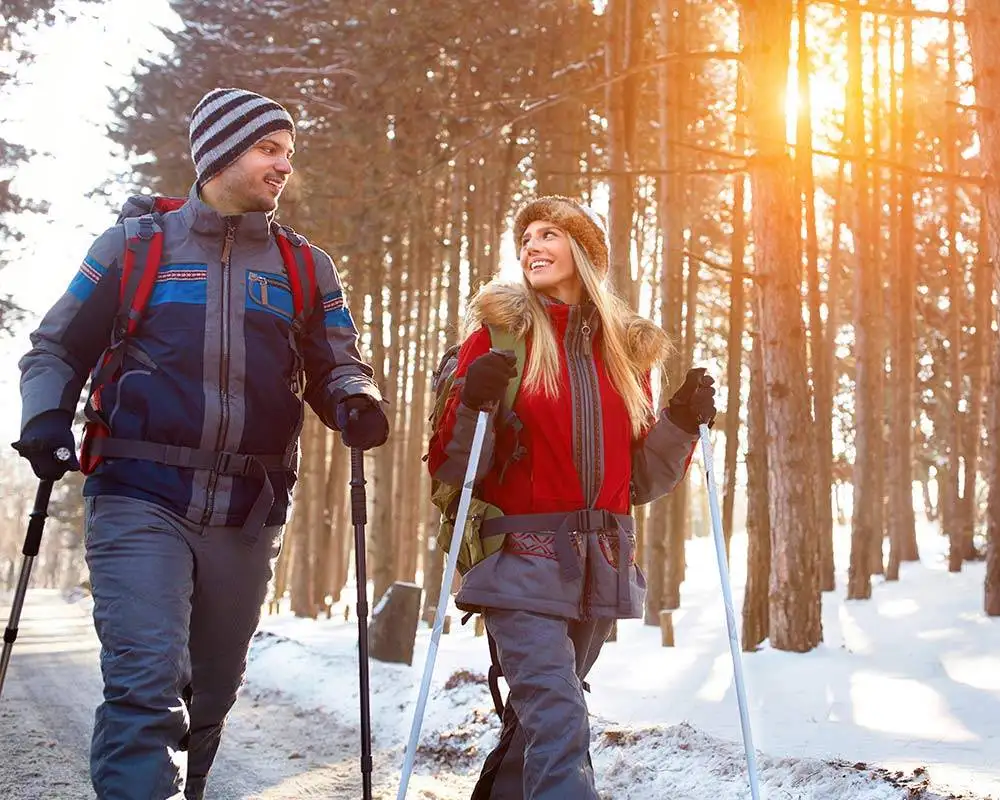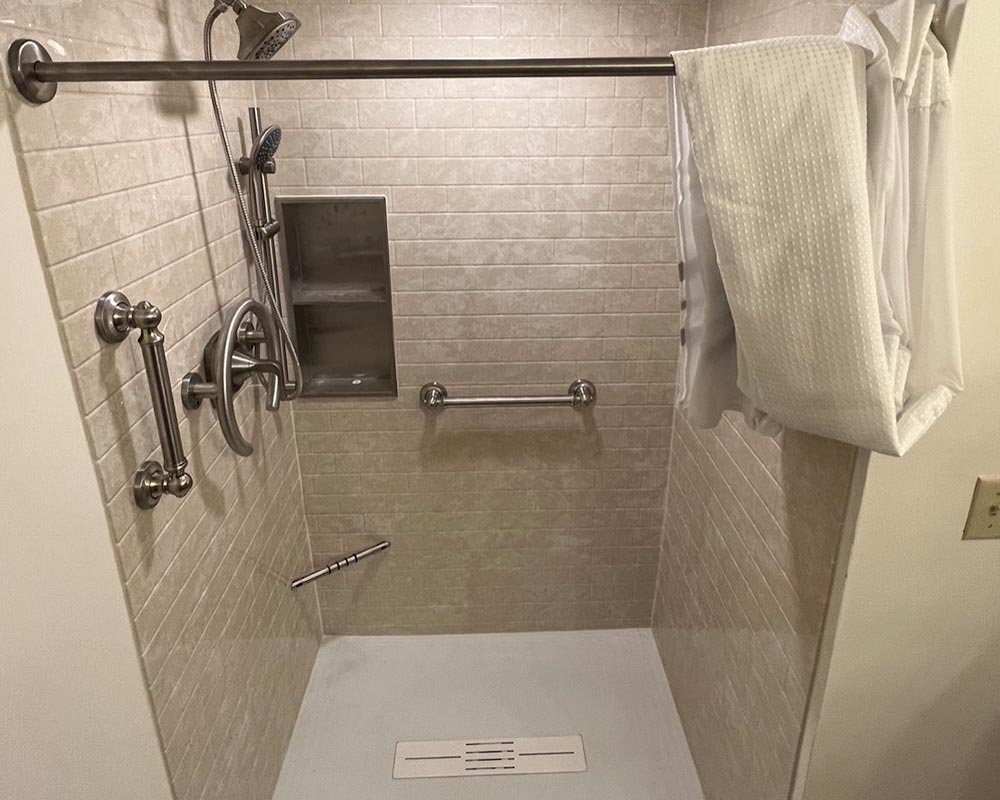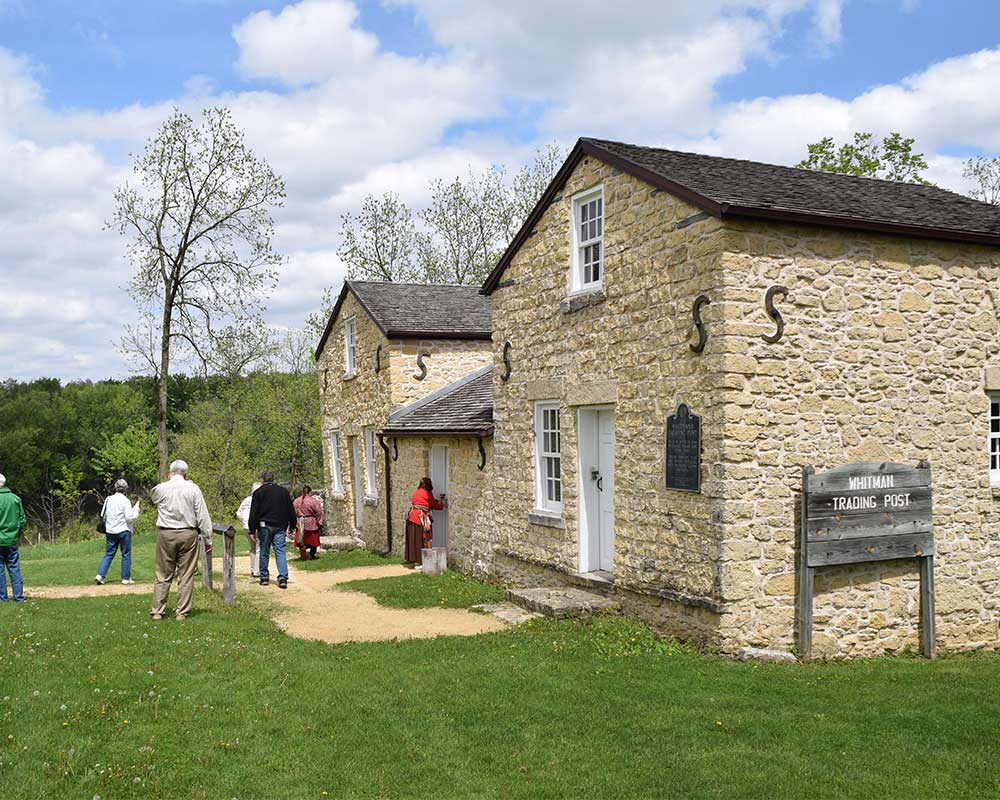When Illinois became a state in 1818, most settlers lived in its southern half. Northern Illinois was still home to migrating native tribes who’d lived here thousands of years. These natives had interacted with transient French-Canadian voyageurs, but hadn’t yet encountered white settlers.
That changed after Vermont native Stephen Mack arrived in 1820. He married Hononegah, age 15, a Winnebago/Potawatomi girl, and put down roots. Letters suggest both Mack and Hononegah were well-liked by whites and natives alike. In the early 1830s, they built a home and planned a town on the south side of the confluence of the Rock and Pecatonica rivers.
Today, the non-profit Macktown Living History (MLH) organization exists where the Macks settled. A few original buildings still stand on land now owned by Forest Preserves of Winnebago County, at 2221 Freeport Road, Rockton.The location is a Natural Historic Site.
“We’re a completely volunteer-run, non-profit organization,” says Connie Gleasman, coordinator of monthly MLH Second Sunday events. “Our region was built by people who had integrity and were willing to work hard. It’s important we know their stories and pass them on. A lot of people drive by and still don’t know Macktown Living History exists here.”
MLH runs an education center and events that shed light on the extraordinary sliver of time when natives and settlers lived together peacefully at Macktown. Between his arrival here in 1820 and his death in 1850, Mack witnessed the Illinois settler population explode from 35,000 to 800,000. Fort Dearborn became Chicago and swelled from 100 residents to 30,000; Galena rose and fell as a mining boomtown; and the native population dwindled to nearly zero as people perished from disease and were forced west by the U.S. military.
The Gathering, June 18 & 19
The largest annual event of MLH is The Gathering, this year on Father’s Day weekend, June 18 and 19, 9 a.m. to 5 p.m.
The Gathering simulates the occasional gatherings that brought together voyageurs, Native Americans, militiamen, settlers and craftsmen to trade goods and news in the 1820s to ’40s. Visitors will see costumed living historians, archery and black powder shooting demonstrations, canoe landings and more. There’ll be live music and the sharing of old-time crafts and skills.
“A lot of people don’t realize that this was the West,” notes Amy Sommerfield, MLH board member and coordinator of The Gathering. “This is where all the action was in those decades.”
Second Sunday Series
Monthly Second Sunday events at MLH sometimes spill into Saturdays. Most topics relate to frontier survival skills like blacksmithing, making fiber or throwing an atlatl – a stick used as a dart. Macktown volunteers teach visitors about native culture, gardening and making things like cider, cabinetry, fiber and footware.
The Gardens of Macktown is the June 12 topic. MLH board member Lucy Pilbin-Adrignola oversees gardens on the site, assisted by volunteers and U of I Extension Master Gardeners.
“I do a lot of research about plants and try my best to find heirloom varieties from as close to that time period as possible,” says Adrignola. She’s especially pleased to grow apple trees that trace back to cultivars of Thomas Jefferson and John Chapman (Johnny Appleseed).
A Three Sisters Garden demonstrates an ancient Native American practice of interplanting corn, squash and beans.
“The Tall Sister is the corn, which provides a structure for the Climbing Sister bean vines,” she explains. “The Spreading Sister squash keeps weeds down and has prickly stems that discourage critters from approaching.”
The Medicine Garden was of great importance to healers.
“There was a lot to understand about which plants helped what conditions, and in what form they were safe to use,” says Adrignola. “A helpful plant and a poisonous plant could look an awful lot alike.”
Future Second Sunday events include The Art of the Cobbler on July 10 and Cabinet-Making/Joinery on Aug. 14.
The Sept. 11 Second Sunday event will offer public opportunity for an archaeology dig led by Dr. Rochelle Lurie.
“Many prehistoric campsites from different time periods cover the whole of Macktown,” Lurie explains. Some date back 8,000 years.
What Happened to Macktown?
Mack named his settlement “Pecatonic,” but others dubbed it “Macktown.” Hononegah bore at least nine children before she died at age 33 in 1847. For several reasons, most beyond his control, Mack’s settlement failed to thrive, unlike neighboring Rockton, founded by the Talcott family. Mack died in 1850.
Learn more at macktownlivinghistory.com. ❚


